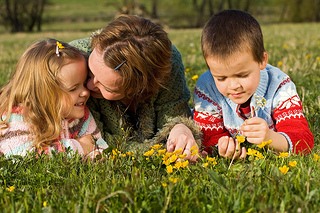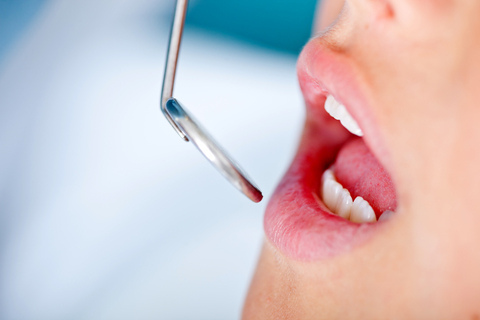August 31st, 2022

Labor Day, celebrated on the first Monday each September here in the United States, is a holiday devoted to the American working community. The purpose of the holiday is honoring the country's workers and their contributions to the strength of our country as a whole.
How Labor Day Started
There is actually some debate as to the origins of Labor Day. It is uncertain whether Peter McGuire, a cofounder for the American Federation of Labor, or Matthew Maguire, who was the secretary of Central Labor Union of New York, had the great idea. However, the Central Labor Union's plans were what launched the first Labor Day in America.
The First Labor Day
The very first Labor Day was celebrated on September 5th, 1882. The Central Labor Union then held annual celebrations on September 5th for what they called a working man's holiday. By the year 1885, the Labor Day celebration had spread to many different industrial areas, and after that it began spreading to all industries in the United States.
Labor Day Today
Labor Day today is a huge United States holiday during which we honor the country's workers with a day of rest and relaxation or a day of picnics and parades. This holiday is truly one to honor the many people who work hard to contribute to the economic well-being of our great country!
Our team at Delaware Pediatric Dentistry hopes all of our patients celebrate Labor Day, and every holiday, safely and happily. Whether you stay in the Lewis Center, OH area, or travel out of town, have fun, and don't forget to brush!
August 24th, 2022

According to the American Association of Pediatric Density, roughly one in five children suffers from canker sores. Canker sores are small sores that appear inside the cheeks, on the lips, on the surface of the gums, and under the tongue.
Even though, canker sores are not contagious, they do tend to run in families. There are several reasons your child may be suffering from canker sores including:
- Children who have Vitamin B12, iron, and folic acid deficiencies tend to get canker sores more often than children who have normal levels of these vitamins and minerals.
- Children who suffer from food allergies are also at a higher risk for developing canker sores. It’s difficult to determine what your child may be allergic to. If you feel strongly that the canker sores are related to an allergy, then a visit to an allergist is highly recommended.
- Biting their lip or cheek can also result in a canker sore.
- Any injury to mouth, where the skin breaks can cause a canker sore.
- Brushing their teeth too hard can also be a problem.
- Your child may be sensitive to an ingredient in their toothpaste. Try switching toothpastes and see if it makes a difference.
- Emotional disturbances and stress are also factors to consider.
If your child has frequent canker sores a visit to our Lewis Center, OH office will be beneficial. Canker sores are painful and usually last about 14 days. Dr. Parulkar may recommend one or a few of the following treatment options:
- Avoid food that is acidic, salty, and spicy.
- A toothbrush with soft bristles may be helpful.
- Avoid mouthwash and toothpaste that contain SLS.
- Do not feed your child foods that they may be allergic to.
Canker Sore Remedies
- Eating yogurt that contains Acidophilus will relieve the pain and help the canker sore heal faster.
- Put one teaspoon of baking soda in an eight-ounce glass of lukewarm water. Have your child gargle and swish it around his or her mouth several times a day. Not only does this remedy relieve the pain, the canker sore could be gone in as little as 24 hours.
- Place a wet tea bag on the sore and hold it there for a few minutes several times a day. This remedy will help with the pain and quickly heal the sore.
- Camphor, Benzocaine, Lidocaine, and Orajel are over-the-counter medications that can help.
If you have questions about your child’s canker sore, contact Dr. Parulkar to schedule an appointment.
August 17th, 2022

If your child could have it his way, chances are he would eat Lucky Charms for breakfast, a peanut butter and fluff sandwich for lunch, and chicken fingers slathered in ketchup for dinner.
Kids will be kids, and maintaining a healthy diet is often the farthest thing from their minds. Do you remember the old saying “an apple a day keeps the doctor away”? Well, that folksy wisdom can be applied to oral health, too. Think of it like this: an apple a day keeps the dentist at bay. Here are five nutrition tips Dr. Parulkar and our team at Delaware Pediatric Dentistry wanted to pass along that will give your child a healthy, bright smile.
- Eat a well-balanced diet of fruits and vegetables. We weren't joking about the apple. An apple naturally scrubs and cleans your teeth. The nutrients and antioxidants in vegetables are good for the entire body.
- According to the Centers for Disease Control and Prevention, calcium is a mineral needed by the body for healthy bones and teeth, and proper function of the heart, muscles, and nerves. Dairy products like milk, cheese, and yogurt are good sources of calcium. Dark leafy vegetables and calcium-fortified foods like orange juice and tofu are also healthy options.
- Keep snacking to a minimum. Sticky and gummy snacks can increase a child’s risk of tooth decay. Unless a child brushes after every snack (and what child does?), sticky snacks can easily get lodged between the teeth.
- Limit soda intake. Drinking large amounts of soda has been linked to childhood obesity. Soda is loaded with sugars and acids, and these ingredients also damage the teeth. Soft drinks have long been one of the most prominent sources of tooth decay. Have your child drink water throughout the day or juice that’s low in sugar concentrate.
- Chew sugarless gum. After all those fruits and vegetables, sooner or later your child is going to want a treat. Chewing gum stimulates saliva, which in turn helps keep teeth clean and bacteria-free. Sugarless gum contains xylitol. The combination of excess saliva and xylitol reduces plaque, fights cavities, and prevents the growth of oral bacteria.
For more information on keeping your child’s smile looking its very best, or to schedule an appointment with Dr. Parulkar, please give us a call at our convenient Lewis Center, OH office!
August 10th, 2022

Our team at Delaware Pediatric Dentistry hears this question a lot. According to our friends at the American Academy of Pediatric Dentistry (AAPD), pediatric dentistry is “an age-defined specialty that provides both primary and comprehensive preventive and therapeutic oral healthcare for infants and children through adolescence, including those with special healthcare needs.”
Pediatric dentists, such as Dr. Parulkar, are dedicated to the oral health of our young patients from infancy through their teen years. Our team at Delaware Pediatric Dentistry has the experience and qualifications to care for your child’s teeth, gums, and mouth throughout his or her various stages of childhood.
Pediatric dentists complete at least four years of dental school, including an additional two additional years of residency training in dentistry for infants, children, teens, and children with special needs.
At Delaware Pediatric Dentistry, we know children are not born with a fear of the dentist, but they can fear the unknown. And that is why Dr. Parulkar and our team know how to examine and treat children in ways that make them relaxed and comfortable.
To learn more about pediatric dentistry, or to schedule your child's next visit at our Lewis Center, OH office, please give us a call today!




